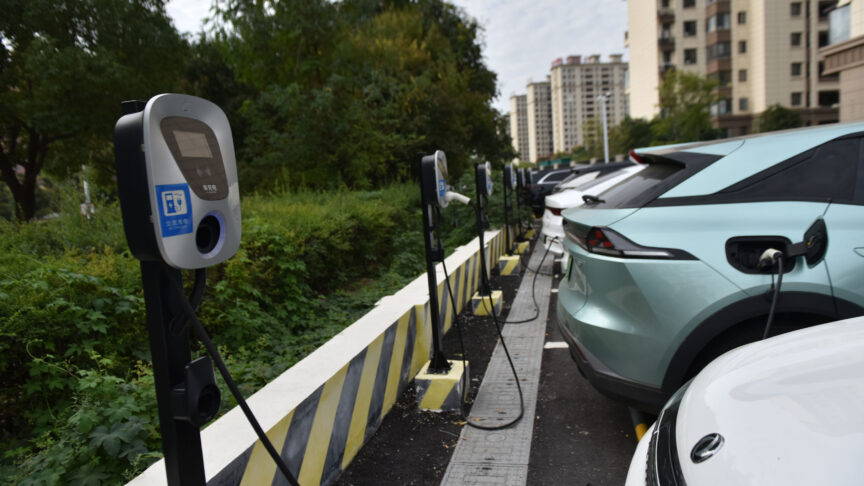Brexit eve: The slow burn begins
Democratic backsliding and constitutional crises could await if the wheels come off Boris Johnson’s Brexit bandwagon.
How on earth can this be happening? The defining shock of the night after the 2016 Brexit referendum was delivered by Sunderland, located in a depressed region massively dependent on making Nissan cars for export to Europe: it voted overwhelmingly for Leave. Now, as Britain finally departs the European Union, the sense of incredulity remains hard to shake. How can we Brits be voluntarily opting for a future which, on the overwhelming balance of evidence and informed opinion, will leave us poorer, less secure, and less influential? Whatever has induced us to drink Boris Johnson’s Kool-Aid?
Leave voters were predominantly older and less well educated – so Remainers like me have been tempted to conclude that half our compatriots are idiots. Yet that sits ill with a deeply inculcated sense of who we British are: a pragmatic folk, resistant to extremes and sceptical of ideologies, endowed with sound common sense. So perhaps not idiots, but dupes – victims of the new virus of political corruption blown in from Trump’s America, as unprincipled politicians realise that the role of mainstream media as gatekeepers of the truth has been overthrown by the communications revolution, and that they can therefore lie with impunity.
Well, yes, there were certainly lies aplenty: but we have had three and a half years since the referendum to think about it. And though polling suggests that for the last couple of years, and to this very day, the majority preference has swung to Remain, this shift was neither sufficiently large nor sufficiently heartfelt to prevent Johnson securing a resounding victory in our recent general election. “Get Brexit done” was the slogan – move on to more important stuff. Millions may have marched in support of a second referendum; but millions more, evidently, were just not that enthused by our EU membership, whatever the arguments of detail.
Even a bare-bones trade deal will be impossible unless we back down on level playing-field provisions and fishing rights.
After “getting Brexit done” on Friday, Johnson promises a sunlit future, following a rapid free-trade deal with Europe – even while doubling down on his pledge of economic divergence. It is hard to see any explanation for this stance other than a conviction that the withdrawal agreement deal he struck in the autumn was indeed a British negotiating triumph, proving that the EU will always compromise at the eleventh hour, and that all will be well in 2020 if Britain hangs tough.
Call me a Cassandra, but I cannot see this as other than a disastrous miscalculation. My own gloomy expectation is that even a bare-bones trade deal by the end of the year will be impossible unless we back down on level playing-field provisions and fishing rights, and start taking seriously the implementation of our withdrawal agreement obligations on Ireland. The choice we will face as the end of transition approaches will be between capitulation and a “no deal” departure that will devastate our manufacturing industry, and leave us at the mercy of US agricultural and pharma interests as we desperately seek a compensating transatlantic deal. Johnson seems to think he can play off the EU against the United States; more probably, Britain will find itself crushed between the upper and nether stones of these economic giants.
Less noticed than these early economic impacts but just as important will be slower-burning issues such as: security (where Britain’s police chiefs have been clear about the damage that will follow from the United Kingdom’s departure from EU police and judicial cooperation); Britain’s influence in the world (where my colleague Jeremy Shapiro points out that our hoped-for “independence” is already shaping up to look more like isolation); and, most fundamentally of all, the literally existential crisis that the UK is about to face, as our very own Catalonia-style constitutional crisis brews in Scotland.
Perhaps we need these travails to arrive at a better internal constitutional settlement, a fairer social, regional, and generational contract, and a more realistic understanding of our place in the world. We certainly will not starve, and some dieting may do us good. On the other hand, worse may await. It will not take much unravelling of the Brexiteers’ extravagant promises to prompt the emergence of a stab-in-the-back narrative, and a recrudescence of the ugly “saboteurs” and “enemies of the people” language which has disfigured our recent political debates. As I have written elsewhere, if the wheels start to fall off Johnson’s bandwagon the threats to Britain’s democratic institutions, beginning with the civil service, the judiciary, and the BBC, have already been clearly foreshadowed. So, at 11pm on 31 January there may be celebrations in Sunderland, but I shall not be sharing in them. As an eighteenth-century British prime minister remarked at the start of some popular but unnecessary war, “Now they ring their bells; soon they will be wringing their hands”.
This commentary was first published in German in AufRuhr Magazine of Stiftung Mercator.
The European Council on Foreign Relations does not take collective positions. ECFR publications only represent the views of their individual authors.


